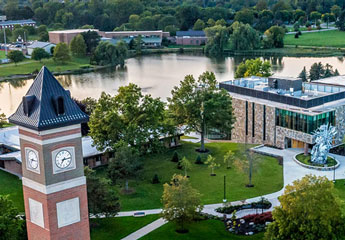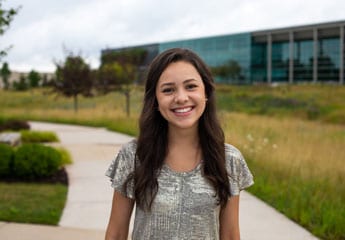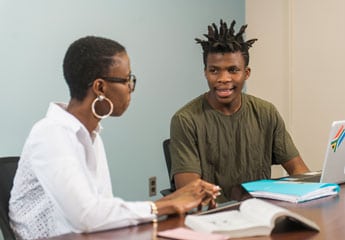To say things have been changing dramatically in the last month is an understatement. In the course of a few weeks, I moved off of Cornerstone University’s campus and transitioned completely to online classes. COVID-19 has led to social gatherings being cancelled, many businesses being temporarily shut down and schools across the country shifting to online formats. Cornerstone is one of them.
As a student, this has been a scary and uncertain experience, but I have not been left alone. Students have moved off campus for safety, and while education looks different now than it did a short time ago, the school year is still moving forward.
With the support of Cornerstone’s community, ranging from students to professors and counselors at The Well, the year moves on.
THE ONLINE CLASSROOM
When all face-to-face interactions have been shut down, how do professors continue to create community in their classes and keep their students engaged?
Cornerstone is fortunate to have a plethora of incredible professors, but I chose to talk to Dr. Jonathan Marko, associate professor of philosophical and systematic theology (and my current professor for a philosophy of science course), about what he is doing to keep students engaged.
“I am doing my best to keep things light and personal whenever an appropriate opportunity presents itself,” Marko said. “I don’t want to simply be a voice delivering information, but a person to which the students can relate and know they can turn.”
As a student, I can personally attest to the importance of having interesting and lighthearted lectures. Most of my life is lectures, but with professors like Marko, I want to be present and listening. I, among many other students, have benefited from the connection our professors form with us.
“I am approaching the online lectures the same way I do my in-seat classes,” Marko said. “If I am not having a good time and finding what I am saying really important and interesting, students will feel the same.”
In the absence of face-to-face meetings, professors have found other ways to keep students engaged.
“Another strategy is using the discussion forums to establish somewhat of a real-time connection, to make sure everyone is checked in, and to see what they are thinking,” Marko said.
He and many other professors continue to include group projects where students can video chat via Zoom, Google Hangouts or other platforms.
But, what does this all mean for students?
A LESSON IN RESILIENCE
With the dedicated work of Cornerstone faculty, we are getting the education we were promised, but there is still more to it all. Our God works in mysterious ways, and this pandemic is no different. It has brought changes and challenges for everyone, but it is also an opportunity to learn a lesson in resilience.
“I hope students will find themselves reflecting on the good examples of adjustment modeled from professors and CU as a whole,” Marko said.
I have seen firsthand the commitment from the faculty and students during this difficult time. Through the changes, I have continued to feel supported in my academics. It is so encouraging to have people as devoted to my education as I am.
I won’t lie and say this hasn’t been challenging. Change is always challenging, but I have been so fortunate to have such committed faculty supporting me.
If you are interested in experiencing Cornerstone for yourself, you still can. In order to follow state mandates and promote social distancing, Cornerstone has developed online resources for potential students to meet with academic advisers, see the campus, connect with others exploring Cornerstone and more. If you are a student interested in attending Cornerstone, I encourage you to check out what virtual opportunities are available to you.







